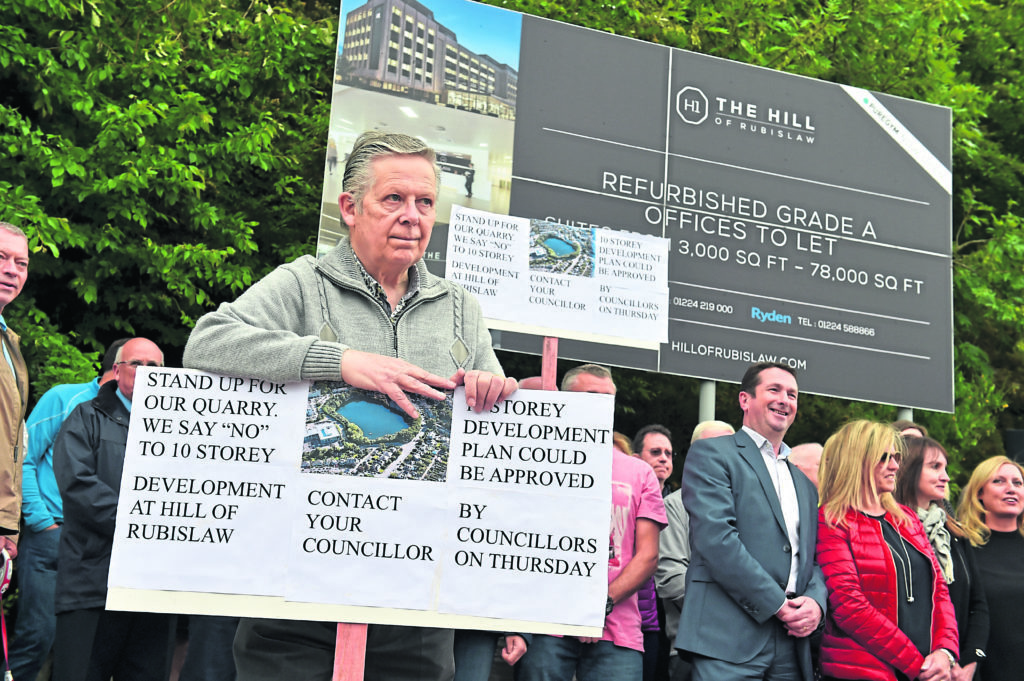
Ambitious £68 million plans to build nearly 300 luxury flats at Aberdeen’s historic Rubislaw Quarry have been thrown out.
Canadian developers Carttera wanted to build 299 rented properties at the west end home of the city’s granite industry and also a residents’ gym, mini-museum and public bistro.
The firm argued their development was a vote of confidence in the beleaguered north-east economy and would open up the site – one of Europe’s largest man-made holes – to the public for the first time in more than 40 years.
But the scheme has proved highly controversial in the area, attracting more than 350 objections.
Concerns were raised about the potential impact on animals living at the site, an increase in parking problems and the 10-storey height of the buildings across the landscape.
Ahead of yesterday’s planning committee meeting, council officers had recommended the scheme for approval, pointing to economic benefits and that the unusual design would add “something different” to the skyline.
But ultimately the committee voted by seven to two to reject it on grounds of “over-development” and “visual impact” fears.
Conservative Alan Donnelly moved to grant the application, backed by Aberdeen Labour’s Taqueer Malik, pointing to a promised £4m contribution towards affordable housing in Aberdeen.
He said: “The city has to, over the next 25 years, develop 35,000 homes.
“This is a £68 million investment in the city, with £4 million for affordable housing, and we want to knock it back? Economic reasons are important considerations.”
But Hazlehead Liberal Democrat Martin Greig, supported by SNP Hazlehead member John Cooke, moved to reject the plan.
Mr Cooke said: “I am not going through the motions on this to be popular with the locals.
“I think the impact on wildlife could potentially be serious.”
Last night the firm announced it was planning to appeal the decision.
The plan had led to a war of words between the Canadian firm and local businessman Hugh Black, who wants to create a £6m heritage centre on the southern edge of the site.
Mr Black’s wife, Gillian, said following the meeting: “I’m delighted that councillors have listened to the opinions of the people who were totally against this development.”
Recommended for you
